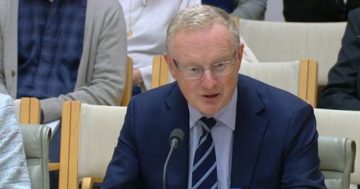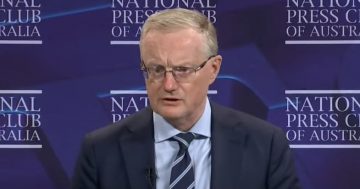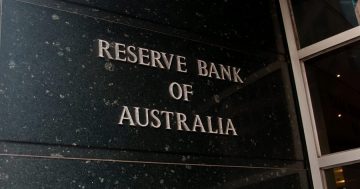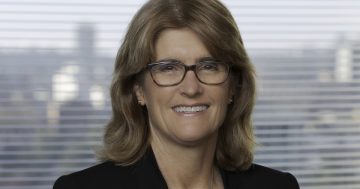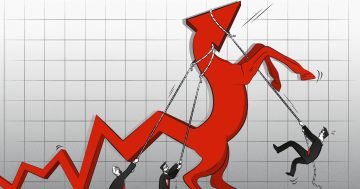
The RBA Governor Philip Lowe appearing before Senate estimates. Photo: Screenshot.
With great fanfare this week, we heard how well Australian banks are travelling at the moment, drowning in profits of an eye-watering level and with nothing but sunshine on the horizon.
The announcement of the Commonwealth Bank’s half-year cash profit of $5.15 billion came hot on the heels earlier this month of record profits for the globe’s biggest oil companies – a lazy $59 billion for Exxon, $40 billion for Shell (its biggest profit in 115 years), and $37 billion for Chevron. Poor old BP could only manage $28 billion.
I’m sure a few of our readers would have choked on their cornflakes as they pondered how they were going to pay their mortgage and cover their energy bills, hearing how the companies doling out the products (home loans and oil) are doing very nicely thank you very much.
Meanwhile, up on the hill, Reserve Bank Governor Philip Lowe was telling all who would listen that, yes, he does have a heavy heart when he hears the news of the personal pain people are experiencing because of spiralling interest rate rises.
But having a heavy heart obviously doesn’t equate to sympathy. The Reserve Bank is likely to raise interest rates at least another two times, Lowe predicted. Please stop blaming me, he said, I’m just the messenger. These are decisions reached by the nine-strong board.
I know there’s not a lot of love out there for Philip Lowe at the moment. It’s not so much that he and the board keep jacking up interest rates. Most of the anger stems from his ill-advised prediction interest rates would not rise before 2024.
Not unexpectedly, many took the Reserve Bank Governor at his word. Unfortunately for them, and for Lowe, interest rates have risen nine times since then, with more to come.
It’s not surprising people are looking for someone to blame, and Lowe is the obvious target. Whether it’s entirely justified will be argued for as long as this crisis, and it is a crisis, continues.
Many people made financial decisions based on the confident predictions of the man in charge of the Reserve Bank, and are facing the prospect of going to the wall if they haven’t done so already.
Leading economists are now arguing whether using the blunt tool of raising interest rates is still the best method to curb inflation. The goal of interest rate rises is to decrease spending and, believe it or not, ensure there is always a pool of unemployed Australians.
So far, the nine interest rate rises have had little effect on our levels of unemployment.
Whatever the best stick to beat down inflation might be, one wonders if we need a community body, similar to the body being discussed for the Voice, to provide advice to the Reserve Bank on how interest rate rises are hurting battlers.
Philip Lowe says he knows people are in pain because he’s heard the news reports. A quick look at the makeup of the Reserve Bank board suggests there are no members who reside on struggle street. They are all upstanding members of the community, don’t get me wrong, but I’m not sure how many of them are currently wondering how to cut corners to ensure they can make their next mortgage payment, if they have mortgages at all.
Perhaps listening to a group of what we call everyday Australians to relate how interest rate rises are hurting them might focus their minds a bit more. It won’t force policy change, I’m sure, but at least it will provide food for thought.












